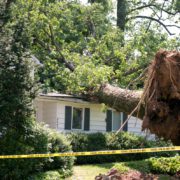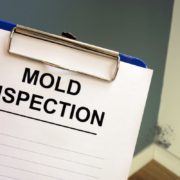Self-Storage Units and Homeowners Insurance Coverage
The late, great comedian George Carlin observed that “a house is just a place to keep your stuff while you go out and get more stuff.” But sometimes, your house isn’t big enough for your stuff (or your parents don’t want your stuff in their house anymore. So you rent a self-storage space where you can keep your stuff. You’re not alone. According to the Self Storage Association, one in every 10 U.S. households is renting a storage unit. But what would happen if the stuff in your storage unit was stolen, damaged or destroyed.
Would your homeowners insurance or renters insurance cover the loss?
Most standard homeowners and renters policies include some protection for covered personal belongings when they are away from home. That includes personal property kept in a storage unit. But don’t take our word for it. Read your policy fine print to see if your policy provides coverage and what, if any, exclusions and limitations there are. Some policies limit coverage for off-property losses to 10% of your total insurance policy. And no standard policy will cover loss due to flooding, mold, mildew, earthquakes, rodent or insect damage or negligent maintenance. For that you’d need additional coverage.
What you’re storing can also determine whether you’re covered and by how much. Standard homeowners and renters insurance policies put restrictions on expensive items like artwork, jewelry, valuable collections, firearms, and such. Those restrictions extend to off-premises storage. Unless you have exceptional confidence in the storage unit you’re using, you’re probably better off putting your coin collection in a bank safe deposit box.
If you do decide to use a storage unit, here are a few tips to keep in mind:
- Choose the most secure storage facility you can afford. Things to consider are the overall security of the surrounding neighborhood, how well access is controlled and what types of security systems are in place. Extras like climate control are desirable to prevent mold and mildew. You should also observe how easily rising ground water could enter your storage unit. If the place is dirty or rundown, look elsewhere.
- Read your rental agreement carefully before you sign it so you understand what losses the storage company will and will not cover. Ask about the storage facility’s insurance, too.
- Check with your insurance provider to see if you’ll need additional coverage for your stored stuff.
- Make a detailed inventory of the items you are storing and their value.
Or, you could just have a garage sale and downsize your stuff.

 EINSURANCE
EINSURANCE EINSURANCE
EINSURANCE